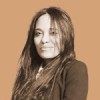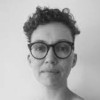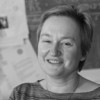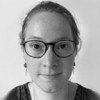Manel Barkallah, the computer scientist at the heart of the language of robotics
What is your scientific field and what are your studies/research activities?
I work in the field of coordination languages in socio-technical systems, i.e. systems that combine humans and software.
In this field, I study the formal mechanisms of communication and coordination used by agents (human or machine) in social and technological systems.
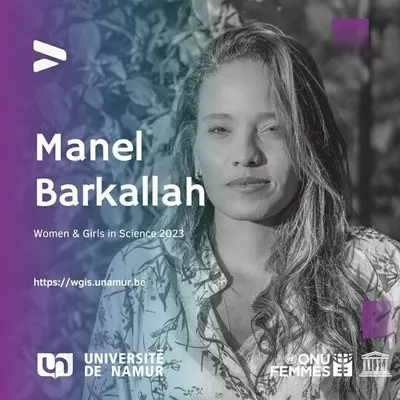
I am also interested in how different agents work together to achieve common goals and use interdisciplinary concepts from psychology, computer science and sociology.
In this research area, my supervisor and I are trying to understand how socio-technical systems can be designed to improve coordination and communication between agents. For example, air traffic systems, to coordinate the movements of aircraft in real time. Or quality control systems in factories, to coordinate production activities and the quality of the final product.
What makes your field so rich?
Coordination languages can improve work processes and outcomes for different types of socio-technical systems. It can also enhance collaboration and communication between actors, in order to strengthen trust and cooperation in socio-technical systems. And especially, to have a contribution to solving complex problems in these systems by identifying coordination challenges and developing solutions to overcome them.
Do you think the fact that you are a woman influences your career as a scientist?
Gender diversity can be beneficial for scientific teams, as it brings different views and perspectives that can enrich scientific research and discovery. However, women can face systemic barriers such as under-representation, gender discrimination, non-recognition of family workload, among others.
What do you think could facilitate and encourage the careers of women scientists?
Various measures are important. For example, supporting women's participation in science from an early age through science education programmes. There is also the need to provide training opportunities (professional and leadership development) and to encourage diversity and inclusion in the scientific community.
What message would you like to give to a woman who might be hesitant to enter the same field of science as you?
I would encourage her to focus on her scientific passions and interests and not to be intimidated by gender stereotypes.
Alice Dennis, the biologist who focuses on invertebrate adaptation
What specifically are you researching?
I am a professor of biology at the University of Namur. My laboratory studies how wild animals (mainly small invertebrates like snails and insects) evolve to adapt to new temperatures. We integrate several research areas, including physiology, field studies and genetics.
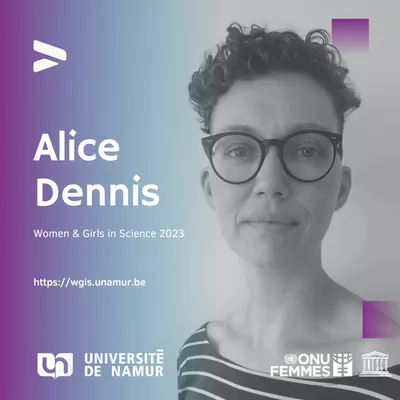
What is it that makes your field so rich?
It's an exciting time to be doing this research because there are so many new tools for sequencing genomes. For the first time, we can sequence and compare entire genomes of almost all organisms, not just a few well-studied laboratory species.
Do you think that the fact that you are a woman influences your career as a scientist?
I have not encountered any direct problems in my recent career, but I think women are frequently questioned and challenged about their skills. This is especially true in the field of computational biology.
What do you think could facilitate and encourage the careers of women scientists?
I think that if everyone (men and women) gave more details about the breaks in their research careers, we would all benefit. The most obvious thing is to list maternity/paternity leave, but there are many other things that fall into this category.
Julie Henry, the educationalist who deconstructs gender stereotypes in science
What are your studies/research interests?
I am a computer, information and communication technology (ICT) and science educator. I have a master's degree in chemistry, an associate degree in chemistry/biology/physics and a PhD in Computer Science Education.
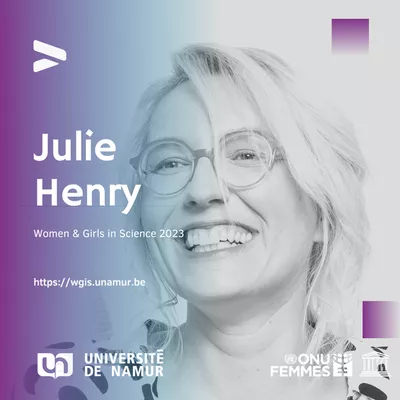
I am currently completing a doctoral thesis in ICT didactics (educational sciences), which is being carried out in my own time. In my working time, I am a STEAM project manager: my research focuses on STEM education (and with it, the question of career guidance towards STEM professions) and the STEAM approach (Sciences, Technologies, Engineering, Art, Mathematics, at the heart of a project-based development).
What makes your field so rich?
Because of my atypical background, I consider that I don't have a single field. This is a strength. In my current job, my research is not only interdisciplinary (chemistry, physics, ICT, computer science, art, etc.), but I also work with a variety of target audiences: children, teenagers, young adults, teachers/trainers, vulnerable people, etc. The days follow one another and are never the same. I never get bored.
Do you think that the fact that you are a woman influences your career as a scientist?
Unfortunately, I have the impression that the influence has been negative, especially as a young researcher. But in reality, because I was not aware of gender issues and stereotypes, I did not feel it as such. Instead, I tended to believe that the problem was with me personally, which then played on my self-confidence and abilities. With age and especially due to the interest I have in the subject, I react much more quickly and let less things pass. However, I have the impression that I always have to be on the defensive, in self-protection.
What do you think could facilitate and encourage the careers of women scientists?
In order for more women to have the opportunity to have a career as a scientist, it would be necessary to attract more girls to science and to ensure that they stay in science until they obtain a degree and more if they so desire. I have therefore chosen an action to be carried out from a very young age: to deconstruct gender stereotypes and the erroneous representations that young people have of certain professions that can influence their choice of career.
What message would you like to send to a woman who is hesitating to enter the same scientific field as you?
Choosing a career path is not just a question of skills (which are often lowly self-estimated).
Anne Lemaitre, the mathematician who predicts celestial mechanics
What is your expertise in your scientific field?
For more than 43 years, I have conducted research in the field of Celestial Mechanics or mathematical astronomy. The aim of this discipline is to calculate the orbits of various celestial bodies, in the medium and long term (sometimes hundreds of millions of years), taking into account forces, resonances and dissipation; their stability (or, on the contrary, their chaotic character) is fundamental and can be estimated by very specific tools.
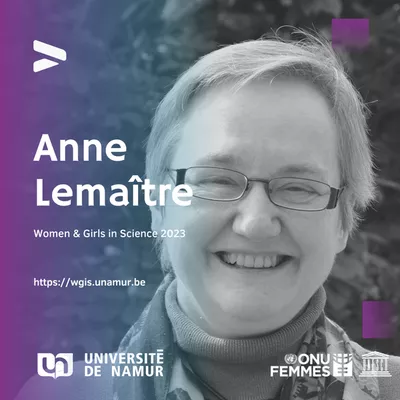
I started with natural bodies, asteroids and ended with space debris, through the modelling of the rotation of Mercury (BepiColombo space mission) and Galilean satellites (JUICE space mission).
What do you think makes your field so rich?
Several things make the field exciting: First of all, the continuous renewal of knowledge (in 1979, 4,000 asteroids were known, today there are more than one million); exoplanets were detected for the first time in 1995, and now the catalogue includes more than 4000), then the interdisciplinarity (I have worked with astronomers, mathematicians, physicists, engineers, geologists, numerologists or theorists or observers) and finally its complexity, which regularly calls into question the acquired knowledge or theories (black holes, formation of planets, time scales, life elsewhere, philosophical links).
Do you think the fact that you are a woman influences your career as a scientist?
At the beginning, I think that wanting to lead a family life and a full-time scientific career at the same time as a woman still seemed a bit utopian and did not convince all the juries. But a real change in mentality has taken place (at least in my field) to encourage women interested in this challenge. So I was increasingly supported and asked (I think even privileged in some cases) to take part in juries, evaluations or representative functions, at the FNRS or the IAU for example, or during my appointment as a lecturer in 1999. Initiatives such as the International Year of Astronomy in 2009, with the theme "She is an astronomer", have really made us known and given us real visibility, nationally and internationally. Unfortunately the percentage of women (permanent jobs) in astronomy is stagnating at around 22%.
What do you think could facilitate and encourage the careers of women scientists?
First of all, I would mention a scientific action: abandon bibliometric rankings and concentrate, in evaluations, on the quality of work and papers. Women publish less often, are more easily influenced by a negative reviewer, are less visible, but spend more time mentoring young researchers or in evaluation. This 'numbers' accounting is systematically favourable to men, because it corresponds more to their temperament, their way of exercising their profession. The criteria must change.
Secondly, as in many cases the management of family life still falls mainly on the shoulders of women, all the measures for flexible working hours, crèches in the workplace, grouped childcare facilities, parental leave, and flexible and adaptable exchanges of services with colleagues certainly favour women's careers as a priority.
What message would you give to a woman who is hesitant to enter the same scientific field as you?
I would advise her to go for it and do what she loves, as best she can, but without listening too much to society's dictates. I'll mention a few that have always shocked me: if you're not appointed by the time you're 30, it's too late; if you don't keep up with three papers a year, there's no point in hanging on; never get pregnant before your thesis; if you have three children or more, you have to go part-time, etc.
Katy Poncin, the biologist who makes mutant bacteria
What is the focus of your research?
I work on pathogenic bacteria, both in vitro and in the context of infections. My preferred tools are molecular biology - I create bacterial mutants 😉 - and microscopy. Our body has to fight infections on a regular basis. Bacteria themselves have to fight each other in order to find resources, including space and food. In the course of my research, I discovered an amazing process of bacterial suicide. I spoke about this at the Women in Science conference at UNamur on 9 February.
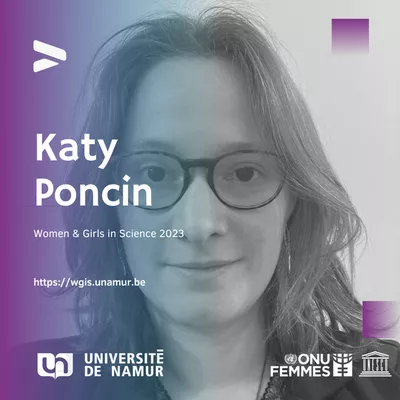
What makes your field so rich?
In my opinion, microbiology is one of the branches of science that has the most potential for discovery. There is such a diversity of bacterial species that research in this field is really in its infancy.
Do you think the fact that you are a woman influences your career as a scientist?
Historically, it has always been very difficult to break into scientific research as a woman. Just look at the proportion of women scientists on permanent contracts compared to men. Nowadays, there is positive discrimination, which should change the situation.
What do you think would facilitate and encourage the careers of women scientists?
Ideally, I would prefer to encourage parity rather than boosting the careers of women only. I think that parental/maternity leave should be shared much more equally within a couple.
Women in science @UNamur
On 9 February 2023, the annual day of scientific conferences and popularisation brought together more than 150 participants around the theme of Women and Science.
What is the aim? To share experiences, to seek possible new collaborations, and to promote science among women by presenting inspiring careers.
More information on the Women in science @ UNamur website
See you in 2024!
